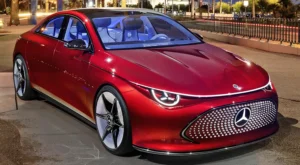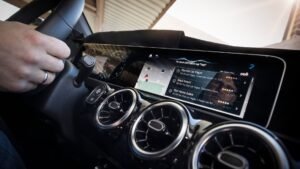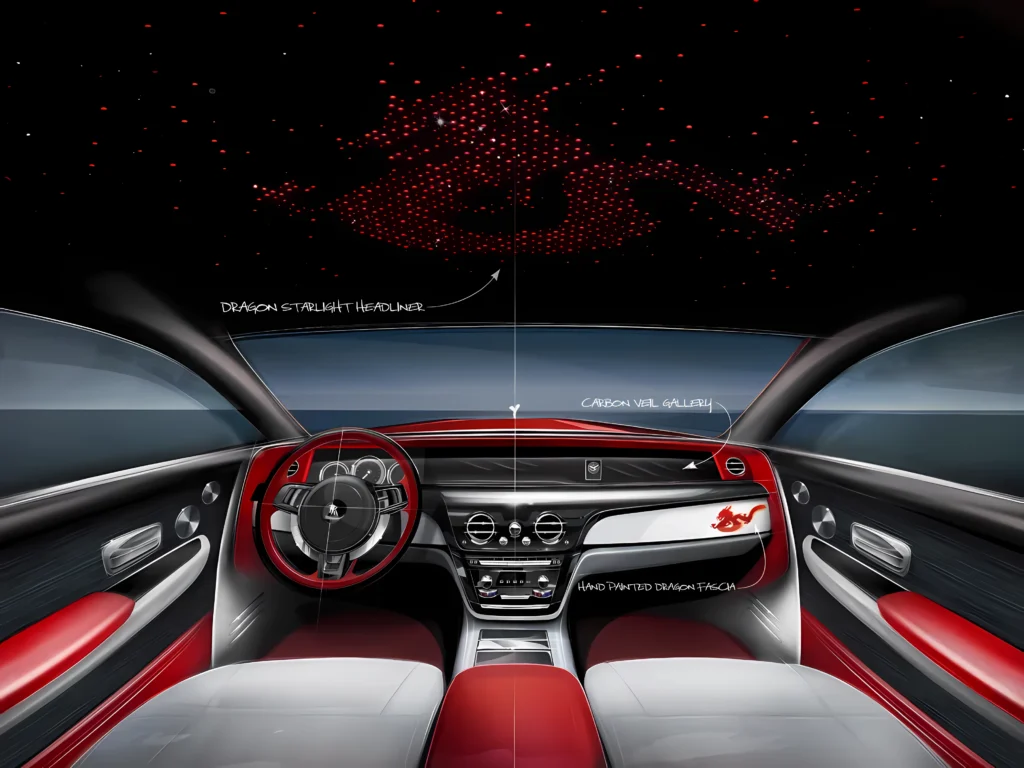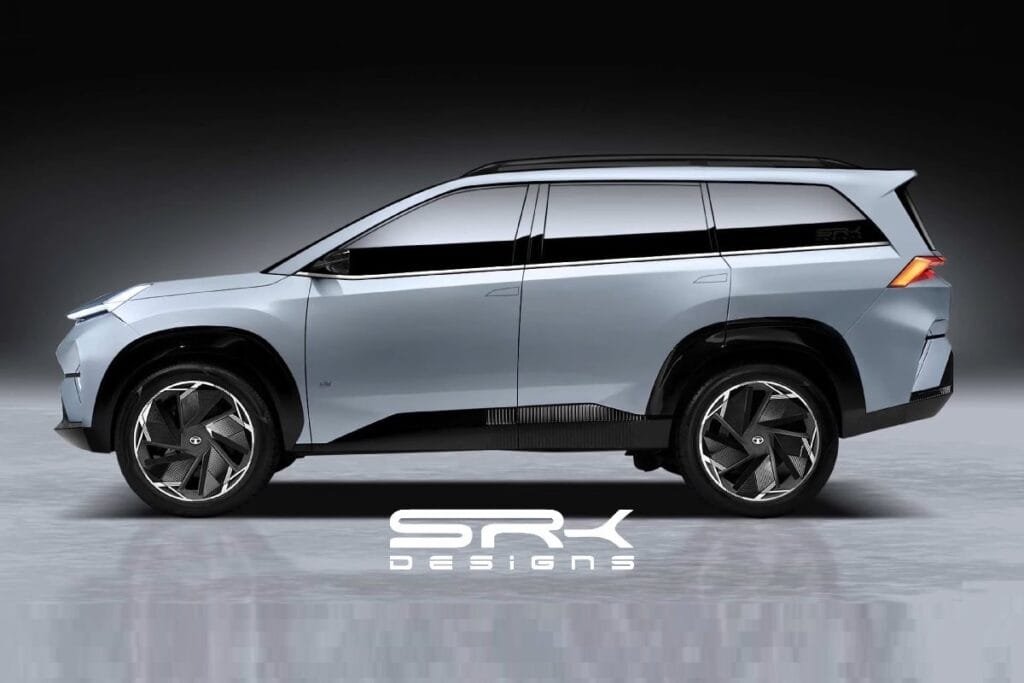In the spring of 2026, your car won’t just take you from point A to point B, it will read your mood, adjust your environment, and maybe even nudge you toward a better day. Hyper-personalized vehicles, powered by context-aware artificial intelligence (AI), are transforming the driving experience into something deeply intuitive, almost human. A hyper-personalized car can dim the cabin lights when it senses stress, cue up your favorite jazz playlist when you’re feeling reflective, or adjust the seat to ease your lower back after a long day, all without you saying a word.
Automakers like Mercedes-Benz and Hyundai are leading this charge, deploying prototypes that interpret emotional and biological signals to make cars extensions of personal identity. But as we embrace this brave new world of automotive empathy, questions of privacy and control loom large. Regardless of the potential challenges, the era where your car probably knows you better than you know yourself is almost here.
The Rise of Context-Aware Technology
The automotive industry is no stranger to reinvention, but the shift toward hyper-personalization marks a seismic leap. Context-aware technology, which uses AI to interpret a driver’s emotional and biological state, is the backbone of this revolution. By 2026, cars will use sensors, cameras, and wearable data to monitor heart rate, facial expressions, and even voice tone, to tailor the driving experience in real time. This next frontier will blend psychology, technology, and design to create vehicles that feel like partners, not machines.

The trend builds on the broader integration of AI in vehicles, which has already transformed infotainment and navigation. According to industry reports, global AI adoption in automotive is projected to grow at a 37% compound annual rate through 2030, with context-aware systems leading the charge. Cars are becoming smartphones on wheels. But now, they are not just smart—they’re empathetic. This empathy, powered by generative AI and machine learning, allows vehicles to anticipate needs, from adjusting climate controls to suggesting a detour through a scenic route when you’re feeling down.
Mercedes-Benz’s MBUX Virtual Assistant
Mercedes-Benz is setting the pace with its MBUX Virtual Assistant, unveiled at CES 2024 and slated for widespread rollout by 2026. Built on the proprietary MB.OS platform, this AI-driven system is designed to be natural, predictive, personal, and empathetic. It uses generative AI, powered by partnerships with Google and the Unity game engine, to create a seamless, almost human-like interaction. The system’s ability to process emotional signals, such as stress or excitement, relies on advanced algorithms that analyze biometric data, though the specifics of sensor placement remain closely guarded.
Now, imagine you climb into your CLA-Class sedan after a tense meeting. The MBUX system, detecting increased heart rate and a furrowed brow via in-cabin sensors, dims the ambient lighting to a soothing blue, cues up a classical playlist, and slightly reclines your seat to ease tension. It might even suggest, in a calm voice, “Would you like a quieter route home?”
The MBUX Virtual Assistant goes beyond reactive adjustments. It learns from your habits — say, your preference for warm cabin temperatures on chilly mornings or upbeat music on Friday afternoons—and proactively tailors the experience. By 2026, Mercedes-Benz plans to integrate this tech across its lineup, starting with the electric CLA-Class and expanding to models like the GLC SUV.
Mercedes-Benz is betting that the future of premium driving lies in emotional connection. It is not enough to have the fastest car anymore; it has to feel like it’s yours in every way. But this intimacy comes with a catch: collecting biometric data raises thorny questions about privacy, a topic we’ll revisit later.
Hyundai: Context-Aware Individualization for the Masses
While Mercedes-Benz targets the luxury market, Hyundai is democratizing hyper-personalization with a focus on context-awareness-based individualization. By 2026, Hyundai’s next-generation infotainment platform, built on the Android Automotive Operating System (AAOS), will power models like the IONIQ 9, a flagship electric SUV. This platform, developed in collaboration with tech giants Naver and Mapbox, enables voice-controlled customization that adapts to the driver’s intent and, increasingly, their emotional state.

Hyundai’s AIRS Company, a division focused on AI research, has already demonstrated an AI Agent that anticipates needs. For instance, if you say, “Turn on the A/C,” the system might respond, “Should I close the windows then?” or warn about poor air quality if you try to open them. Hyundai aims to take this further, integrating sensors to detect emotional cues. Imagine the IONIQ 9 noticing your tense voice after a heated phone call and adjusting the cabin to a cooler temperature while playing a calming podcast.
Hyundai’s approach is pragmatic, focusing on accessibility. While the IONIQ 9 will feature premium tech like digital side mirrors and Highway Driving Assist 2, the underlying AI platform is designed to scale across Hyundai’s lineup, from the compact Kona to the family-friendly Palisade. This scalability sets Hyundai apart, making hyper-personalization a reality for everyday drivers, not just the elite.
How It Works
At the heart of hyper-personalized cars is a sophisticated interplay of hardware and software. In-cabin cameras and sensors, often embedded in the steering wheel, seats, or dashboard, collect real-time data on heart rate, skin temperature, and facial expressions. These inputs feed into AI models trained to recognize emotional states—stress, fatigue, joy—and translate them into actionable adjustments. For example, Mercedes-Benz’s MBUX system uses machine learning to correlate biometric data with user preferences, while Hyundai’s AAOS platform leverages cloud-based AI to process voice and contextual cues.
The technology draws inspiration from wearable devices like smartwatches, which have long tracked biometric data. But cars take it further by integrating this data with environmental controls. Some prototypes even explore scent diffusion, releasing calming lavender or energizing citrus based on mood, though this feature remains experimental.
The challenge lies in accuracy and calibration. Emotional detection is notoriously complex, as cultural and individual differences can skew interpretations. A racing heartbeat might signal excitement in one driver and anxiety in another. Automakers are addressing this through machine learning that refines its understanding over time, but early adopters may encounter hiccups as systems fine-tune their empathy.
The Privacy Paradox
Hyper-personalization’s promise comes with a shadow: privacy. Monitoring emotional and biological signals generates a treasure trove of sensitive data, raising concerns about security and consent. Who owns this data? How is it stored? Could it be shared with insurers or advertisers? These questions are fueling heated debates as automakers race to implement context-aware tech.
Mercedes-Benz emphasizes that its MB.OS platform keeps data processing in-house, with regular over-the-air updates to enhance security. Hyundai, meanwhile, is working with partners like Naver to ensure robust encryption, but the involvement of third parties introduces additional risks. Both companies are under pressure to address these concerns, as a single data breach could erode consumer trust. According to experts, the industry needs transparent data policies. Drivers should know exactly what’s being collected and have the power to opt out.

Aside from the privacy concern, there is an ethical dimension to the conversation. For instance, if a car detects fatigue and suggests pulling over, but the driver ignores it, who’s liable in an accident? And what happens when insurers demand access to biometric data to assess risk? These questions remain unresolved, casting a cautious light on an otherwise dazzling innovation.
The Road Ahead
By 2026, hyper-personalized cars will redefine what it means to drive. Mercedes-Benz’s MBUX Virtual Assistant and Hyundai’s context-aware platform are just the beginning, with other automakers like BMW and Toyota exploring similar tech.
This shift has profound implications for design and branding. Automakers will compete not just on horsepower or range but on emotional intelligence. The car that understands you best will win your loyalty. For drivers, it’s a chance to forge a deeper connection with their vehicles, turning daily commutes into moments of self-care or inspiration.
Driving into the Future
As we look to 2026, the rise of hyper-personalized cars signals a new chapter in automotive history. Mercedes-Benz and Hyundai are leading the way, crafting vehicles that don’t just respond to commands but anticipate desires, blending AI, biometrics, and design into a seamless experience. Whether it’s a calming cabin for a stressful day or an energizing vibe for a road trip, these cars promise to make every drive uniquely yours. But as we embrace this intimacy, we must also demand transparency and control over the data that makes it possible. The future of driving is personal, empathetic, and thrilling—if we can steer it right.









